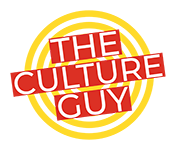Earlier this month Cadbury launched a chocolate bar that will end world racism! Yes, you read that right! It will end racism! Only it won’t! It’s a stupid idea and just another example of a brand jumping on a band wagon to sell us something we really didn’t know we needed, because, well, we didn’t need it.
The social sphere saw right through it though with tweets like:
Consumers are not stupid, but this idea is, for a couple off reasons (and I can’t believe no one at Cadbury or the agency that produced this realised it would go horribly wrong – hubris and arrogance perhaps, but that’s a whole other post):
- Firstly, It belittles racism as a token issue with a token solution, rather than an endemic struggle that has been raging for years and sees no sign of being solved soon. (I’m not an expect on the history and the impacts of racism, being a white, middle class westerner, so I will leave these discussions to more informed and intelligent people than me!).
- The second reason, this was a bad idea is that the massive lack of authenticity in the product is blindingly obvious. Cadbury’s cares nothing about communities or racism, it cares about profit. If it did care, it would probably pay it’s fair share of taxes.
Cadbury did once care about these things. When the company started and as it grew, George and Richard Cadbury created a thriving community and generously rewarded their workers.
But not these days. Not since it was bought out by Mondelez International.
It’s this authenticity, or lack of it, that I want to address today.
You see, if Patagonia, the clothing company, used it’s love of the environment and sustainability to launch products, we would accept that, because they have clear brand values that they have consistently lived out through the way they behave, so it would be authentic and believable.
Cadbury’s commitment to unity, not so much.
What about your organisation? How do you create and maintain that authenticity in your communication without just ‘woke-washing’ and jumping on the latest issue bang wagon to sell crap to people that they don’t need? Because if it’s the later you will be called out. Social media will take you to the mat!
Well, being authentic is actually quite simple, but unfortunately not easy to implement. It’s easy to understand, but very difficult to get right, which is why we see responses like this one to badly thought through campaigns on a weekly basis.
Being authentic takes two things. Firstly, you need to be clear about your purpose and then create systems to ensure the relevant behaviours and values are consistently lived out. Simple!
- Spend time deliberately defining your purpose and the values, so everyone is clear on what you’re trying to build. Don’t just give this lip service and pump out the first thing you think of. Know it inside out. Repeat it often and in lots of places. It should be the heart beat of the organisation.
- Examine and if necessary rewrite the processes and procedures that run your organisation. Make sure everything you do reinforces and reflects the purpose you’ve defined.
Get this right and it will be easier to truly live out your authentic self, like Patagonia. It will be really obvious when you deviate from this authentic self, like Cadbury. If you don’t spot it the rest of the world will and let you know loud and publicly!
Do you know your organisations purpose? Does your organisation truly live up to this purpose?



